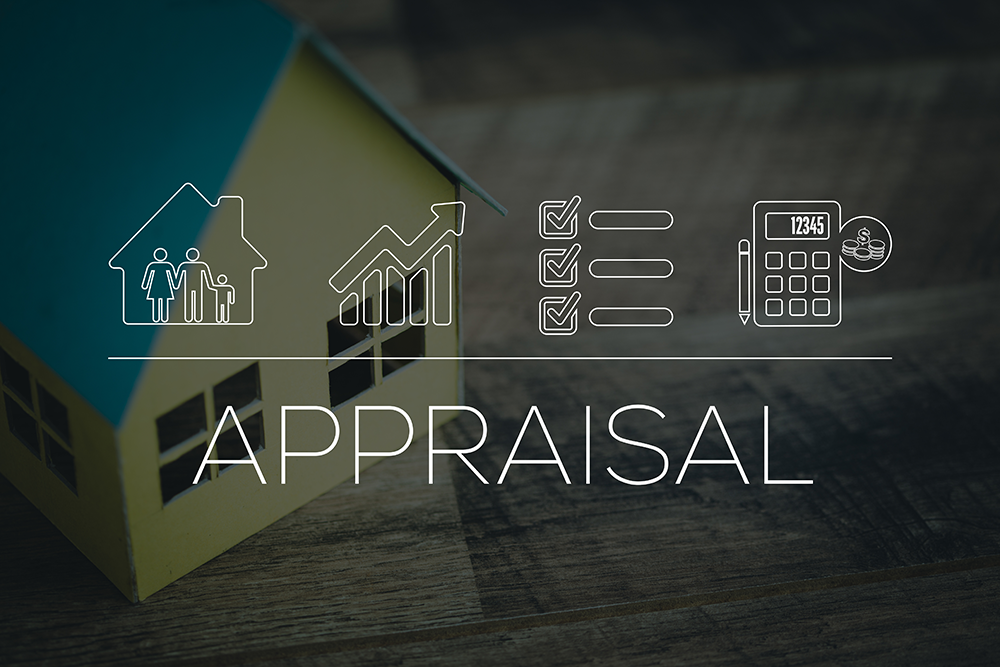Posted: January 22, 2025 by James Burns in Borrow, buy house winnipeg, closing costs manitoba, how does a mortgage work, low interest rates, Manitoba mortgage rules, mortgage credit score, mortgage experts, Mortgage FAQs, mortgage with a credit union
Manitoba mortgage FAQs answered
Manitoba’s hot housing market continues its upward trajectory, with sales increasing 10.9% in the first 11 months of 2024. In November alone, home sales jumped 20.3% over the same period last year. While home sales are up across Canada, Winnipeg in particular has become increasingly attractive to buyers. The city offers all the amenities an urban dweller expects, but the cost of living, real estate and property taxes are all considerably lower than in other Canadian cities.

If you’re looking for a new home, you’re likely looking for a mortgage as well. You can book an appointment with an ACU mortgage expert, who knows the market and can guide you every step of the way.
If you’re not yet familiar with the steps to getting a mortgage in Manitoba, or it’s been a while since the last time you had to sign on the dotted line, you may have recently asked these questions:
- How does a mortgage work?
- How much of a down payment do I need?
- How do I get a mortgage in Manitoba?
- How long does it take to get approved for a mortgage?
- Are mortgage pre-approvals important in Manitoba?
- How do I qualify for a mortgage at the credit union?
- What is a good credit score for me to get a credit union mortgage?
To help you through the steps, we’ve compiled answers to these frequently asked Manitoba mortgage questions. Review them all or scroll to the answers you want first!
How does a mortgage work?

Mortgages are loans used specifically to buy a home. You pay off the mortgage with regular payments (usually of principal and interest) over the amortization period of the mortgage. “Amortization” is the number of years it takes to pay off the mortgage, and payments can normally be made weekly, bi-weekly, semi-monthly or monthly.
A mortgage is secured against the value of your home. This means that, if you’re unable to make your payments, your home could be sold off to pay your debt. Amortization periods typically start at 25 years for first-time homebuyers, however, you’ll normally sign up for a five-year mortgage term. This is the length of time that your current mortgage contract will last, with the agreed conditions, such as the interest rate and flexibility to make prepayments.
After the mortgage term matures, you can either sign up for another term with the same lender or arrange a mortgage with a different financial institution.
How do mortgage renewals work?
A mortgage renewal refers to extending your mortgage at the end of your current term. Mortgage terms can range from six months to 10 years, but many mortgages have a five-year term.
You’ll need to sign a new mortgage contract before your renewal date; sometimes, you can renew online. There’s no fee for renewing your mortgage at the end of your contract, although there may be a penalty if you want to get out of your mortgage contract early. Once your term expires, you can renew your mortgage with your current lender or get a new mortgage from a different lender.

When negotiating a new mortgage agreement, changes can be made to the interest rate, payment frequency and other terms. Renewal is a good time to assess your financial situation and see if you can bump up your payments or increase your payment frequency to pay off your mortgage sooner.
How much of a down payment do I need?
You will need to provide a down payment of at least 5% of the selling price of the home. Down payments can come from sources such as:
- Your own savings, with statements to show this
- Your RRSPs, through the Home Buyers’ Plan (up to $35,000)
- A gift from a close family member, with a signed letter from them stating that the gift doesn’t have to be repaid
- From the sale proceeds of an existing property
If your down payment is less than 20%, you’ll have to pay for mortgage loan insurance. The amount will depend on the size of your down payment—the more you can put down, the less you’ll pay.
Your ACU financial advisor can work with you to figure out the details, including mortgage loan insurance premiums and the down payment required.

Try this mortgage calculator from ACU, which can help you work out the costs.
How do I get a mortgage in Manitoba?
Mortgages are available from credit unions and other financial institutions. To get started, you usually have to fill out an application and provide supporting documents to help with your qualification. These include:
- Official identification to prove who you are
- Proof of income (usually two payslips plus T4s)
- Tax returns (Notices of Assessment) if you are self-employed
- Savings account/RRSP statements showing your down payment savings or a gift letter
Once your financial institution has all the necessary documents, they’ll start the process to approve your application.
Download ACU’s Required Mortgage Documents Checklist, which will help ensure that you have all the documentation required for the mortgage approval process with Assiniboine Credit Union.
How long does it take to get approved for a mortgage?
Mortgage approvals can be relatively quick, especially when you come prepared with confirmation of your income, down payment and other key details. While the approval time depends on multiple factors, ACU advisors will work with you closely to expedite the process.
Timeframes depend on the specific steps required by your Manitoba mortgage lender and how quickly you can get all of the necessary supporting documentation together. It could be much quicker if you’re only applying for a pre-approval at this stage. But be careful! Depending on the lender, pre-approvals can be little more than a promise to hold an interest rate for a specific period, while a pre-approval that involves a higher level of underwriting (like running a credit check) is more likely to be honoured when closing on your new home.
A mortgage pre-approval isn’t necessary in Manitoba, but it can be beneficial because it helps define the price range of homes you’ll be able to afford. In a competitive market, pre-approval may even be a necessity. Since realtors want to limit viewings to serious buyers, many are now asking for a pre-approval before allowing potential buyers to view a house. Especially if you’re coordinating the sale of your existing home with buying another property — or the sellers are — pre-approval clarifies your current financial situation, which helps you act quickly.
Are mortgage pre-approvals important in Manitoba?
Pre-approval isn’t strictly necessary but can be beneficial, because it helps narrow down the price range of homes you are looking at.
In a competitive market, it may even be a necessity. Since realtors want to limit viewings to serious buyers, many are now asking for a pre-approval before allowing any potential buyers to view a house.
For people coordinating selling their existing home with buying another property, pre-approval is an important step. It illuminates your current financial situation, the timing of the sale and the mortgage amount you can afford, which could impact the terms you sell on as well.

Some lenders will want an appraisal on the home you’re buying, to make sure it’s worth what you’re paying for it. Your credit score will also play a part, with many lenders refusing mortgages to people with poor credit. You’ll also need to prove you have the necessary down payment, as mentioned above.
How do I qualify for a mortgage at a credit union?
Credit unions and other mortgage lenders look at several key factors:
- Your income
- Your outgoing expenses, including debts
- Your credit score
- The home you hope to buy
- Your down payment / closing costs
Mortgage lenders use debt-service ratios to calculate the size of a mortgage you can afford. These calculations start with your income, then look at what your mortgage and other monthly expenses add up to. If the ratios are too high, you’ll have to look at buying a less expensive house. Lenders will generally want an appraisal on the home you’re buying, to make sure it’s worth what you’re paying.
Your credit score will also play a part. Most financial institutions will accept a credit score of 720 or above. Any lower than 680 and you may be looking at a higher interest rate. If your score is lower than 600, you might find it a challenge to qualify for an affordable mortgage loan. Working with your ACU financial advisor, you can learn how to bring your score up to a range where you’ll start to qualify for the best available terms.
What is a good credit score for me to get a mortgage at the credit union?
While this depends on the lender, most financial institutions will accept a credit score of 720 or above. Some lenders want to see a score over 740, while others might accept a score as low as 680. Any lower than 680 and you may start to see interest rates go up.
If your score is lower than 600, you might find it a challenge to qualify for an affordable mortgage loan. Working with your ACU financial advisor, you’ll be able to learn the steps required to bring your score up to a range where you’ll start to qualify.
How can a credit union help me get a mortgage?
Credit unions are based locally, without distant head offices making disconnected top-down decisions. For instance, ACU’s head office is in Winnipeg, so they understand the local and greater Manitoba markets. Approving a Manitoba mortgage within days is common at ACU.

Credit unions also aren’t beholden to shareholders. This means the needs of members can be prioritized over the need for profit. ACU’s goal is always to find the mortgage that best fits the overall needs of the member.
Help getting you started with your mortgage
ACU’s financial advisors can help get you started with a pre-approved mortgage and make the whole experience an easy one. Here’s how we can help:
- Extremely competitive rates with a low five-year fixed mortgage interest rate
- We’ll guarantee your rate for 120 days† so you don’t have to feel rushed as you search for your perfect home
- Our Assiniboine Credit Union mortgage experts know the local real estate market
- We’ll be by your side every step of the way, from pre-approval to closing and beyond.
†ACU will guarantee the qualifying rate for up to 120 days from time of qualification for new mortgages. Conditions apply.
Book an appointment online today, or give us a call at 204.958.8588 (toll-free 1.877.958.8588). We’re looking forward to helping you secure your mortgage.
Up Next
Community stories
Read more ›
Celebrating the 10th anniversary of student-run credit union
Just over 10 years ago, a survey circulated at Winnipeg’s Technical Vocational High School. The results showed that students at the school, commonly known as Tec Voc, felt short-changed—they were…
Borrow, Business growth, Community stories
Read more ›
Kilter Brewing Co. serves up craft beer and community connection in St. Boniface
Deep in the heart of St. Boniface, Kilter Brewing Company is a hidden treasure—an oasis for Winnipeggers to escape their day-to-day routines, enjoy craft beer and connect with their community….
Borrow, General, Money tips
Read more ›
How to use a mortgage calculator to budget better
Learn how to use ACU’s mortgage calculator to figure out how much mortgage you can afford, and what budget you should set before you start house hunting. A mortgage lender…





